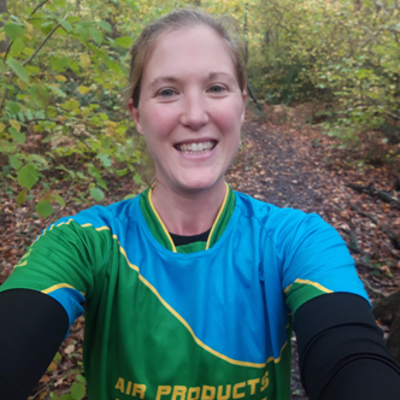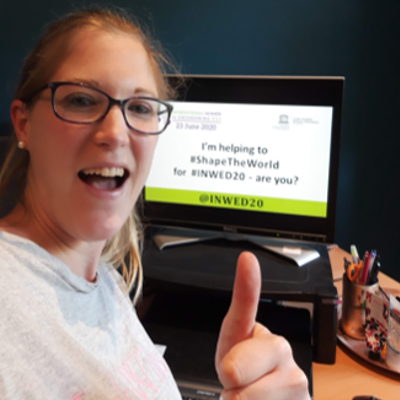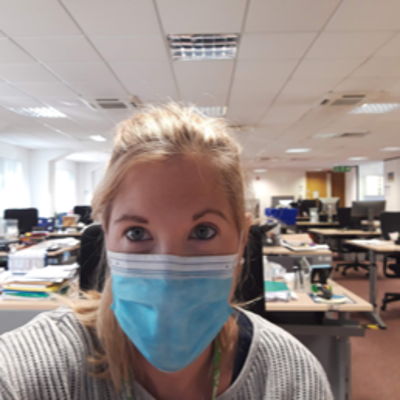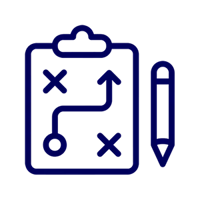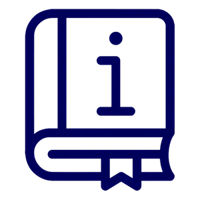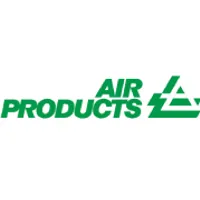
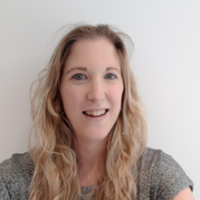
Jo Collins
Proposals Manager at Air Products
There is no such thing as a "typical" engineer/scientist/etc so don't ever be put off by perceptions you may have. If you want to work in STEM you can (and must, and will) work in STEM!
About Jo...
Who am I?
"The personality types match well because I am a natural leader who wants all around them to succeed, which I believe should be the goal of any coach or manager or trainer. I am passionate about bringing people on board with my ideas and working collaboratively to achieve the end goal. I do not manage individuals as such, however as a proposals manager my role is to collect information from people (such as costs/timings/scope from other engineers) and report it to the people on the business side of the company. Therefore I need to manage the workload and communicate with many different teams. If someone is not performing how I need them to for targets to be met I find the best solution is to support them and coach them to achieving the result I need."
What do I do?
"The key outcomes for each proposal are:- Technical Proposal, which goes to the customer and explains all the details that they would be signing up to in the contract. This includes things like the product flow rates and pressures, electrical usage, plot space required, duration of construction and commissioning, and any details of shut downs we may need over the lifetime of the facility.- Cost estimate. This includes all the engineering hours for doing the design and management of the project, the cost of all equipment and the shipping/tax cost for getting it to site, the cost of labour to build and commission the facility.- Schedule. This is the high level schedule detailing the start and end dates from project kick off to the plant being ready to send product to the customer. It includes interdependencies so we can see what the critical path items are (which might include for example a long lead item that takes many months from order until it is ready on site).- Plot plan. We always try to work from the same starting point but we never have the ideal space available so we always need to make changes, and all these changes impact the length of interconnecting piping and cabling for example. We also need to take into account safety distances between some of our equipment and customer boundaries.It can seem quite daunting at first to collect all the information from so many different sources, and manage the constant scope changes to avoid mistakes/re-work. There are many different balls to keep juggling in the air which I really thrive off. I also really enjoy pulling all the final documents together. I sometimes liken it to pulling out individual strands of spaghetti from a bowl - I need to untangle all the information that comes from all over the place to present clear and tidy information to others, in separate strands!"
How did I get here?
"I think we should go right back to the start here. I had no idea what chemical engineering was until a chance newspaper cutting about it led me to start looking into it while doing university applications. The variety of jobs you could do as a chemical engineer (and the pathways it also kept open if I found chemical engineering wasn't quite for me) as well as the exciting new technologies and developments you could be a part of got me immediately hooked. I studied chemical engineering at Newcastle University and from there went straight into a graduate scheme with Air Products. This was perfect for me as there were so many jobs I didn't even know existed and among them I didn't know where my strengths lay. The graduate scheme was a 6 year scheme during which I did 5 different roles and at the end of it I was able to become a Chartered Engineer. I did a technical role in our small scale packaged gases area, before moving into our Operations team as a Process engineer which gave me a lot of travel. I then spent some time in the Engineering group but missed the dynamic nature and travel opportunities of the Operations area. I went back for a few years as a Project Manager which involved managing changes to our existing sites from initial change concept, through to execution of the change and project close out. However then the graduate scheme needed me to move again so I moved to Process Safety to get some exposure to such an important area of the industry. I learnt a lot and got the opportunity for more travel over my few years in this role. By this point I had finished the graduate scheme and had become Chartered so I was looking for my next change. I moved to the Proposals team because I realised it was the up front cost estimating and scheduling part of the Operations Projects role that I enjoyed. This is a role where I feel most at home and I really enjoy it.Inspiration has come from many places, starting with the author of the newspaper article (who I was able to thank many years later!), and more recently my peers. I have always struggled with imposter syndrome (\"feelings of self-doubt and personal incompetence that persist despite your education, experience, and accomplishments. It is defined as the feeling that you are a fraud, and a lack of self-belief that you aren't as skilled as others perceive you.) and have found that working with people I can closely relate to (in my case women close to me in age) and building relationships with them has been a major inspiration. Not only do they show me that if they can do a certain role then I should challenge myself to give it a go too, but they've also supported me throughout my career journey. I have also had amazing ongoing support from previous managers who I have discussed my personal challenges with. They have been able to offer me the support I needed in the roles I've done, but also been mentors for me once I've moved to different roles, so that I always feel I can go and talk to them a"
The life I live
"When not at work (and not on childcare duty for my two young boys) I will usually be found doing some sort of sport. I am really into my hockey which I play a few times a week, and I also play golf whenever I find the time. I run regularly and since having children I now stick them in a buggy and run with them which we all love! Perhaps it is the natural leadership I thrive off but for all the sports I do I always seem to take on the leadership roles (for example I am chair of our work running club, and head of the women's section of my hockey club) - I think for me this is a good way of blending my strengths at work with my hobbies and I think both complement each other...even if it does give me very little of my own free time!"
My typical day
"My job is to estimate the cost to build air separation units. These are facilities/manufacturing plants that take in the air and separate it into its constituent parts - oxygen, nitrogen and argon - which we then sell to customers. To do my job I define the scope of the project, create a presentation summary to kick off the work. and then work with all the various disciplines (mechanical engineers, process engineers, electrical engineers, vessels engineers, civils engineers, controls engineers, shipping, procurement, construction, commissioning to name a few) to collect in the costs and timings, and identify any risk areas. I pass all this information to the business team who package it up as a contract for the customer. So, whilst I spend most days at my desk in the office, I do sometimes get to travel to customer sites for meetings, both in the UK and abroad. A typical Monday for me: During the morning I arrive at the office, get a coffee and start looking through emails. I attend my weekly workload meeting where my team and the business teams discuss all the active proposals we are working on for customers. I will then follow up on a couple of questions that were raised in the workload meeting and speak to our electrical engineering manager about any questions a mechanical engineer has asked about my latest proposal. I then prepare for the afternoons plot plan meeting - email out copies of the plot plan to everyone in the meeting, and prepare the checklists we will work through. At lunch, I go for a run and eat my lunch. After that, I answer a few emails and then attend the 2pm ‘Plot, Plan, Review’ meeting. This lasts for a few hours and involves working through a checklist to make sure all requirements have been met such as access requirements, safety distances and consideration of pipe routing. There are representatives from the process, machinery, piping and product owner teams. After the meeting I follow up with some emails and around 5.30pm I make my way home"
My qualifications
"A-levels (Maths, Chemistry, Geography, French)Masters degree in Chemical Engineering (Newcastle University)Graduate scheme at current company, from where I have moved between roles"
Jo's Photos
